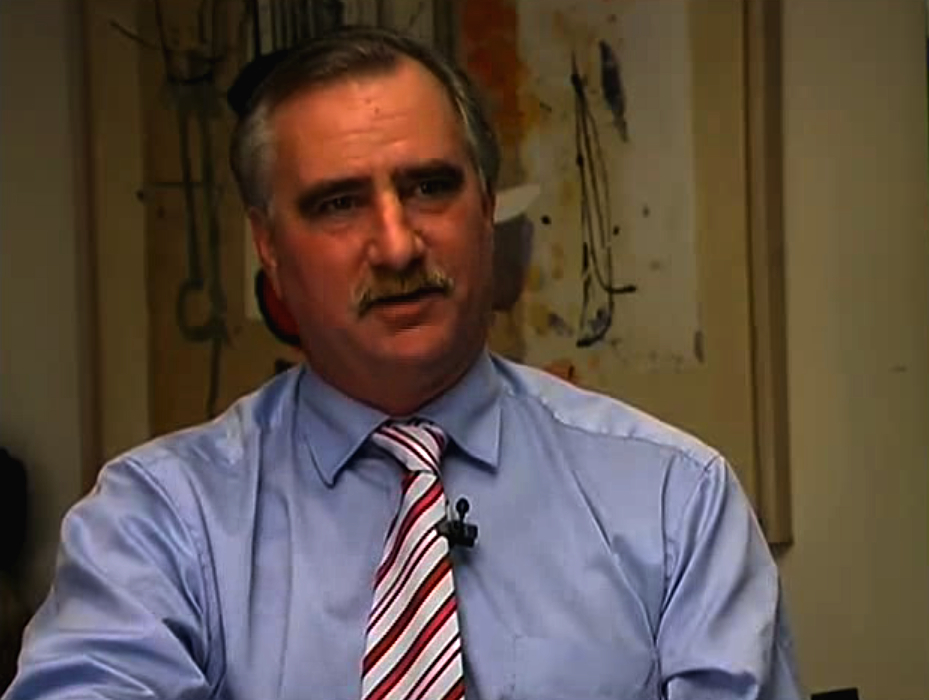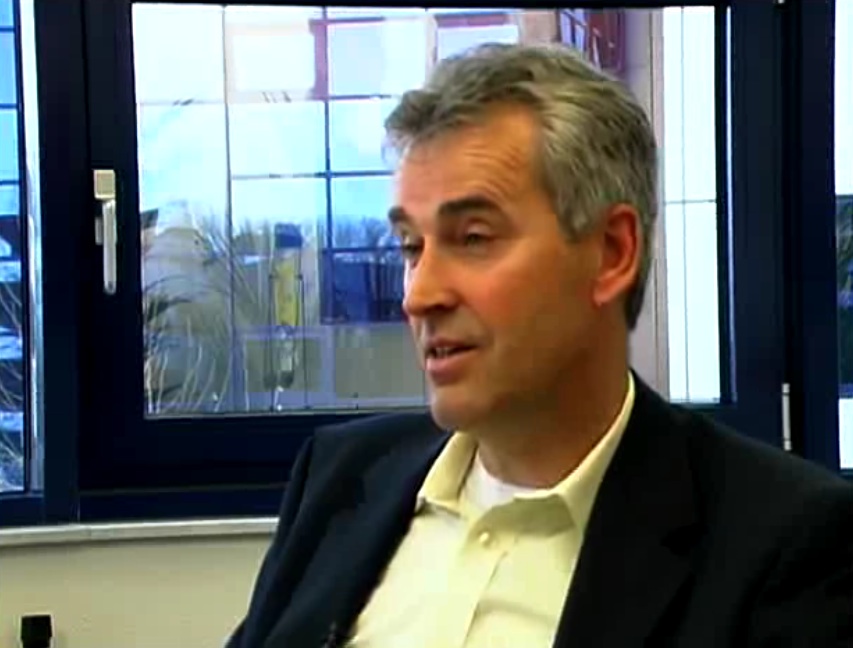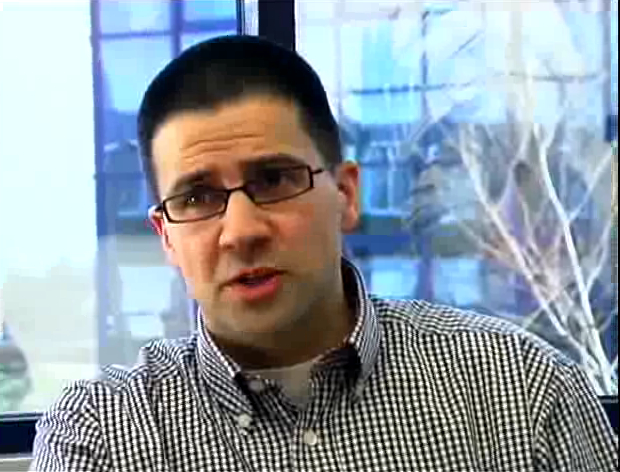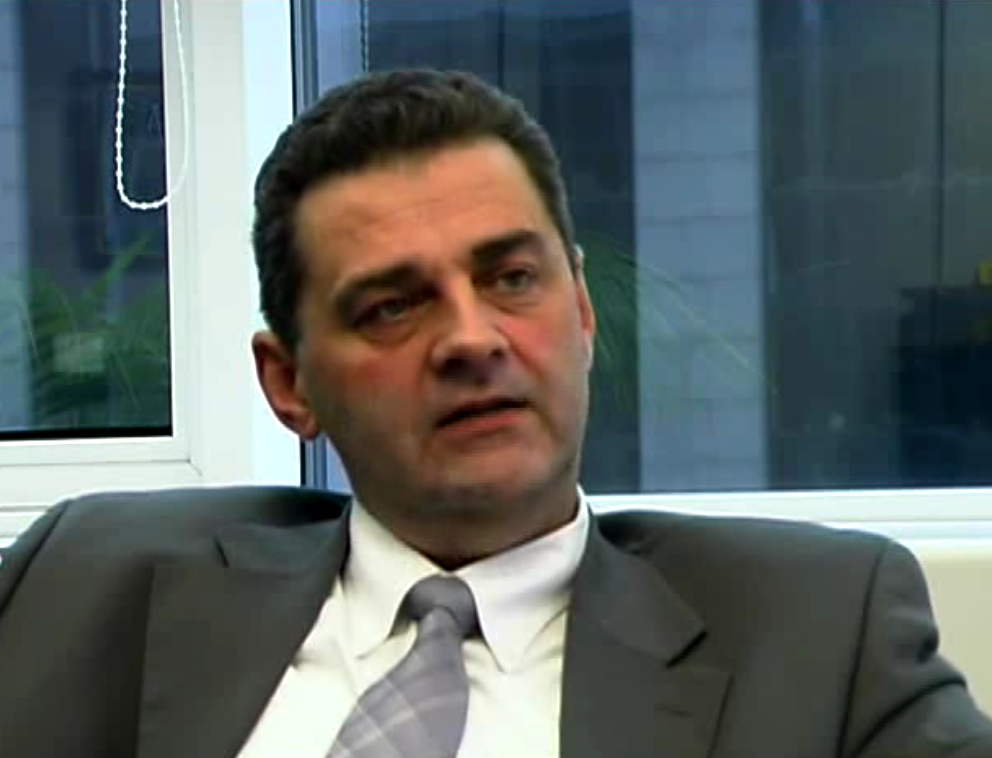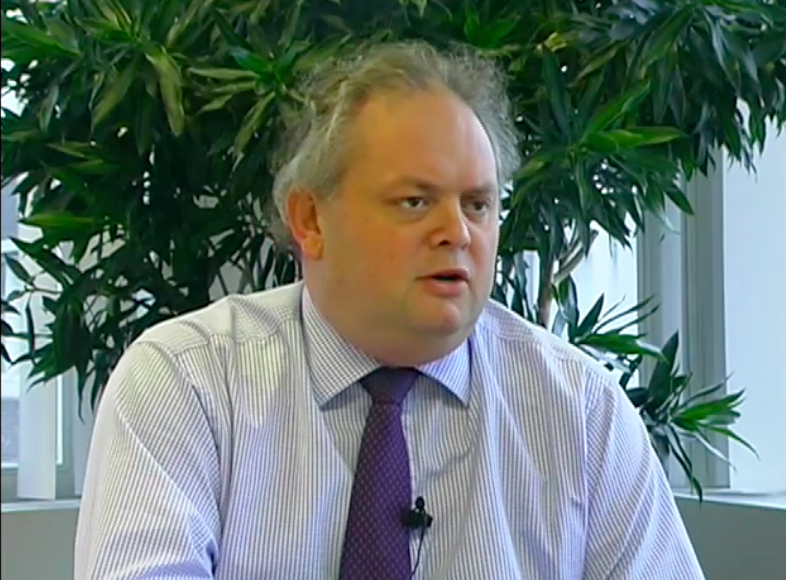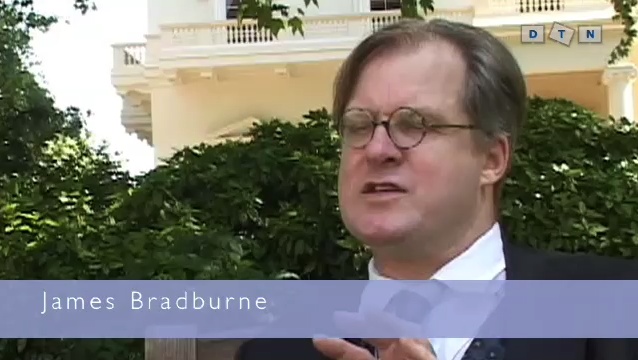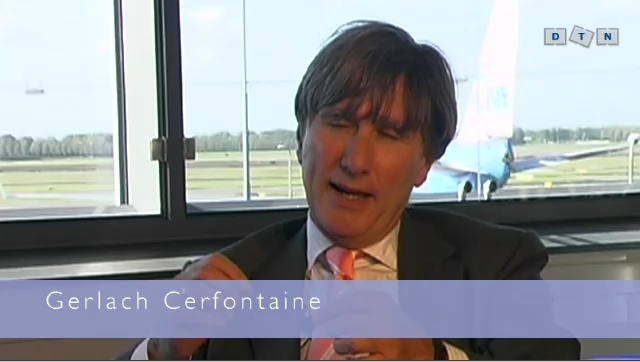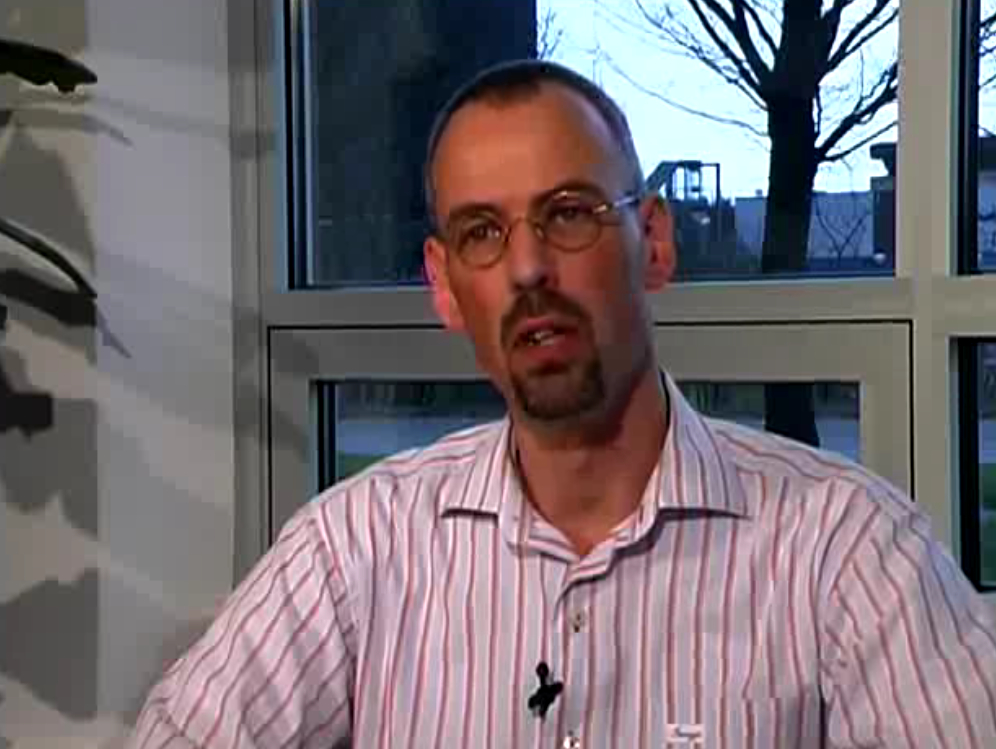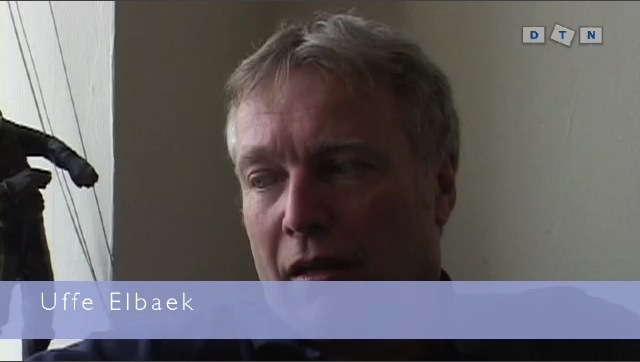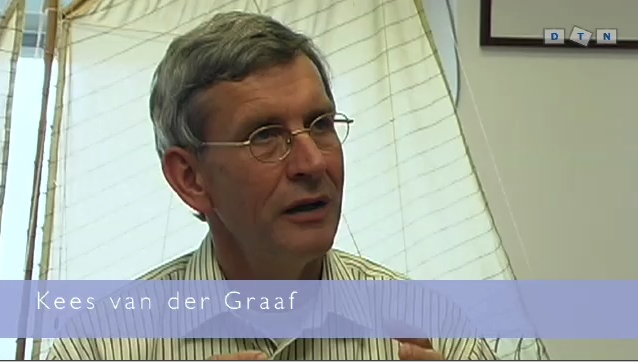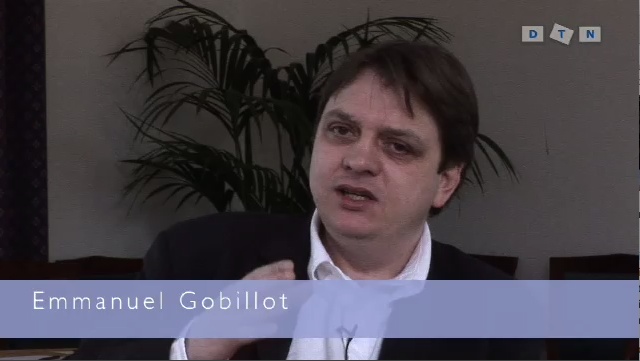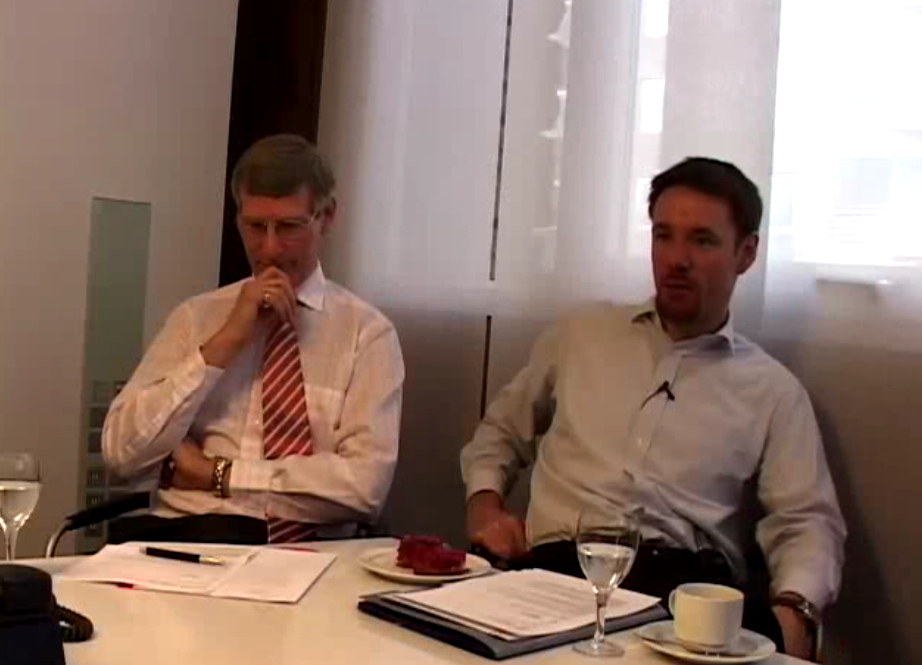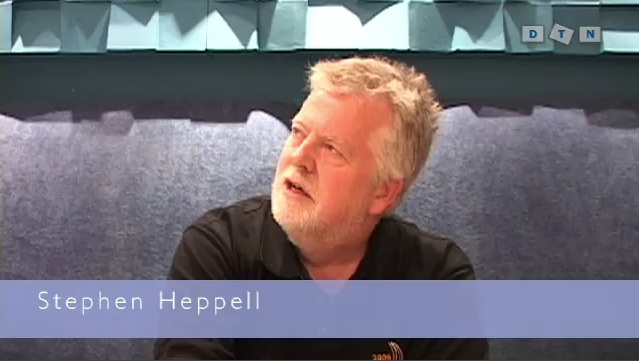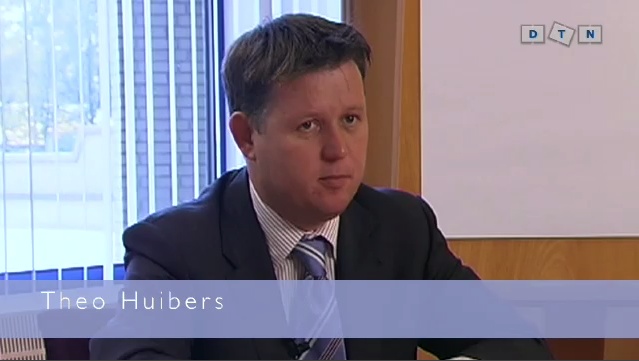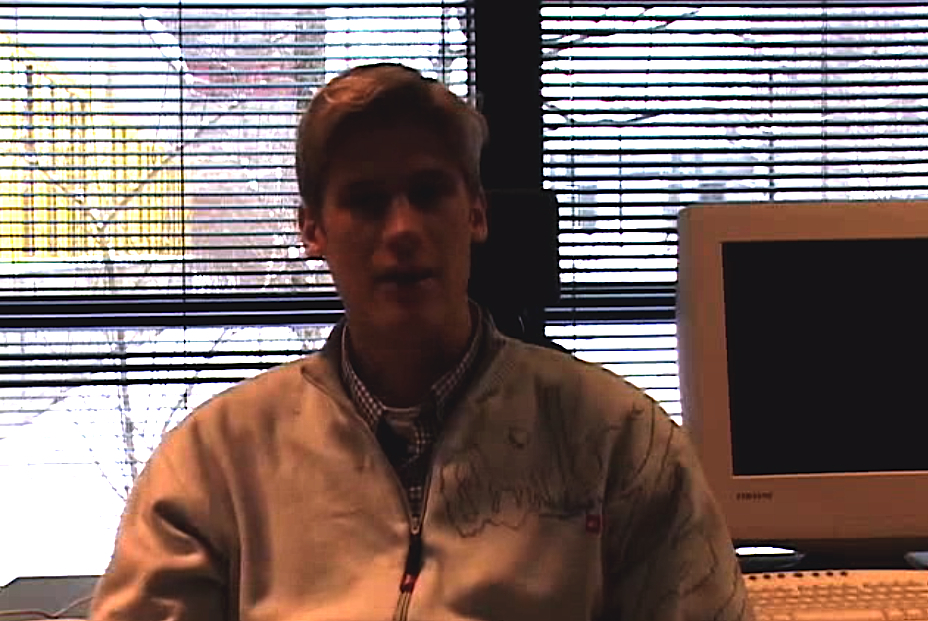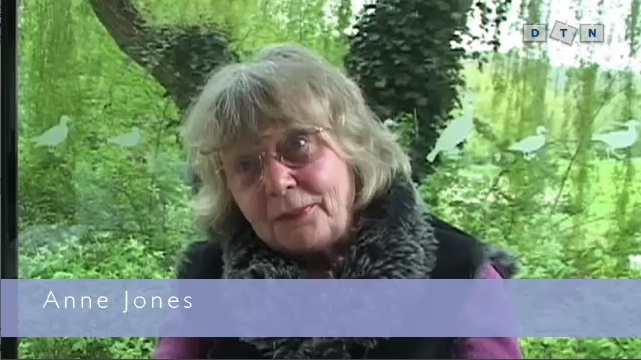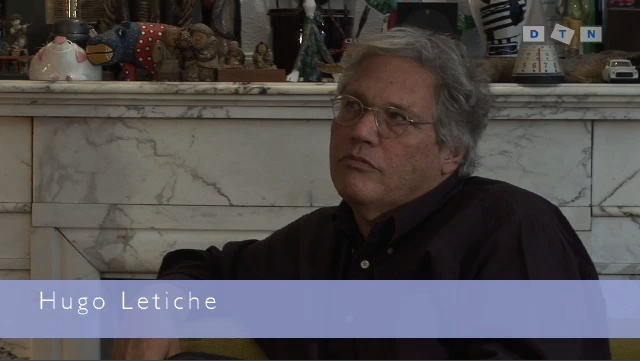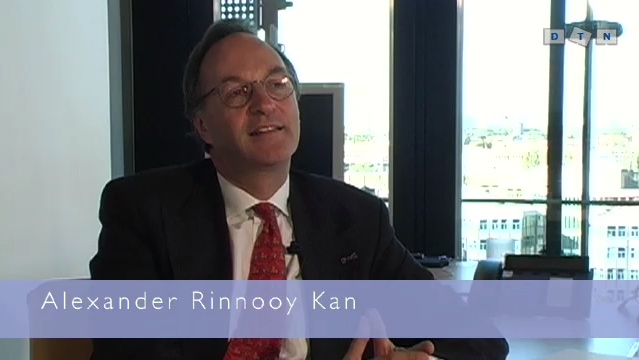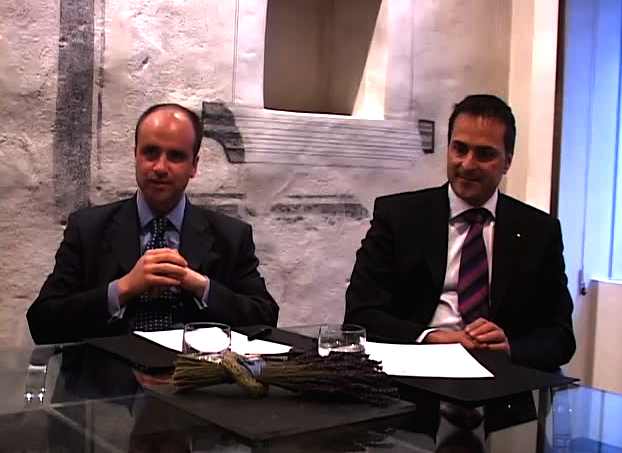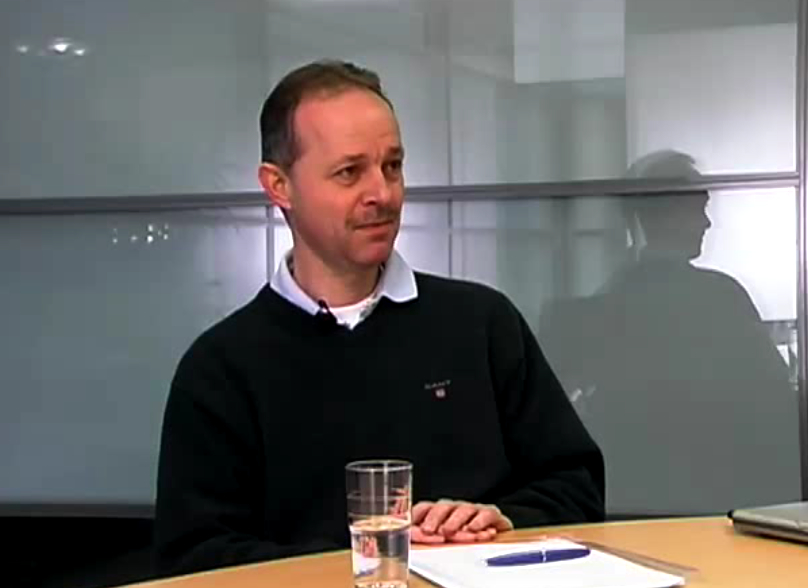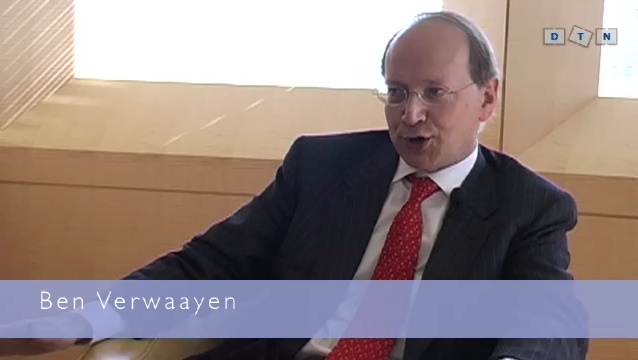Alphabetical list of European interviews:
Ton van Asseldonk – Founder of TVA developments
In this interview Ton van Asseldonk argues that ICT in banking is mainly used for doing the same in less time: for cutting costs. In his opinion ICT should focus on the many new possibilities for entirely new services that it could offer. The notion that packages could do anything for the relation with costumers is daft in his eyes. They might be necessary, but it makes the costumer relations more complex, not less. Related to this is the complexity on the market and how banks should respond to that, if they don’t want to loose their business.
______________________________________________________________________________________________________________________________________________________
Henk Badoux – SAP Director Banking Solution CRM
Richard Dingemans – SAP Business Consultant
According to Henk Bacoux and Richard Dingemans, banks are not short on information. So the challenge is not how to get information, but how to utilise it to serve the costumers in the best possible way. Using standard solutions is the key in using information, not in the least because it allows room to focus on relationships.
Standard solutions is not the same as giant closed systems. SAP recognises that openness towards third party solutions is part of this development.
______________________________________________________________________________________________________________________________________________________
Eddy Bex – CIO Fin-Force
Marketing, outsourcing and knowledge are the central themes in this interview. According to Eddy Bex, banks are behind in the global marketing game. An important issue that starts to arise in outsourcing is the loss of knowledge of existing systems. With the rapid changes we see now this can be a problem for both maintenance and innovation.
______________________________________________________________________________________________________________________________________________________
Michiel Boreel – Director of strategy with Sogeti – Netherlands
In this interview, Michiel Boreel mainly discusses the bottom-up processes and its influences on financial institutions in building trust and creating costumer advocacy. He also speaks about the problems and challenges facing ICT outsourcing and standardisation, and elaborates on pessimism versus optimism towards the role of ICT. At the end of the interview, he gives an insight into possible reactions to changing customer behavior and how to build consumer loyalty.
______________________________________________________________________________________________________________________________________________________
Yvo de Boer – Head of the UN Climate Bureau (UNFCCC) – Germany
Invest in the future or invest in legacy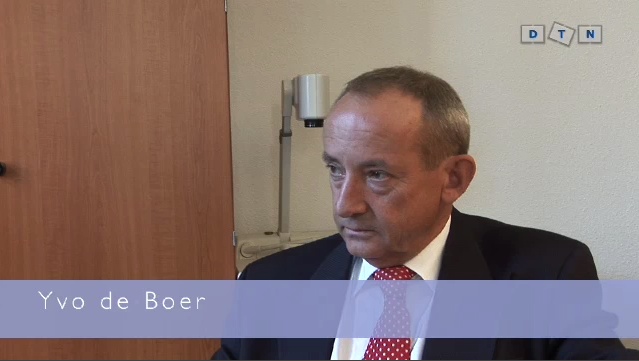
“The most important challenge is not to focus on how to manage the threats of today. I think the challenge is far more to see how you can grasp the opportunities of the future.” Yvo de Boer argues that sustainability issues should be addressed in terms of a framework of fifty years into the future. Since investments last for decades, it is very important to look not only at their impacts in the near future, but also at their effects over the lifetime of the investment.
______________________________________________________________________________________________________________________________________________________
Roelf de Boer – Former Deputy Prime Minister Netherlands – Netherlands
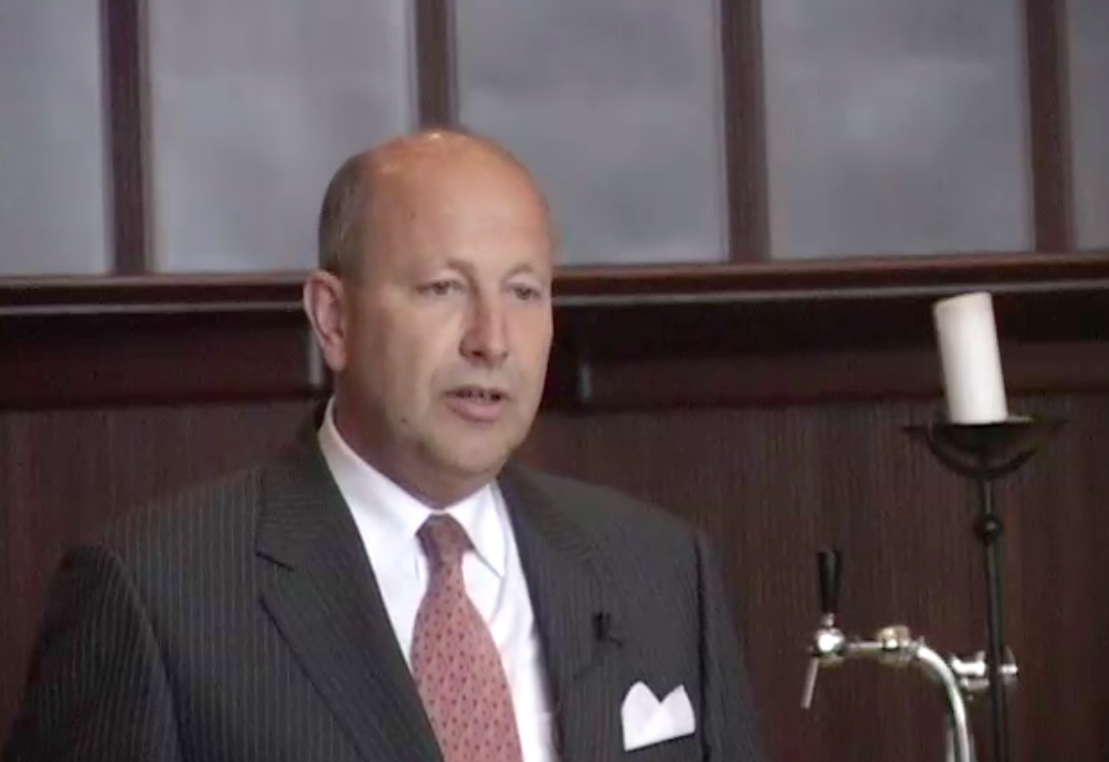 Our challenge is to re-invent Rotterdam. The city has done that before, after the Second World War, when the city lost its heart: we rebuild our city center, and we rebuild our strength and self-confidence. We must stimulate ways for citizens to participate and contribute.
Our challenge is to re-invent Rotterdam. The city has done that before, after the Second World War, when the city lost its heart: we rebuild our city center, and we rebuild our strength and self-confidence. We must stimulate ways for citizens to participate and contribute.
______________________________________________________________________________________________________________________________________________________
James Bradburne – Director of the Next Generation Foundation – U.K.
“We are increasingly building the trust factor into the technology; we are removing it from the person.” Humans are enhanced by the technology they use. We increasingly displace intelligence, transferring it to objects. According to James Bradburne, this means that we have to learn how to deal with these objects and what they can really do. So, it is vital in education that children learn to understand what they are doing when they use technology, and to use technology to enhance their own possibilities, rather than abandoning them to the technology.
______________________________________________________________________________________________________________________________________________________
Gerlach Cerfontaine – CEO of The Schiphol Group – The Netherlands
Gerlach Cerfontaine is looking for a new way of thinking. He is searching for a way of thinking that creates energy and makes collaboration easy; a way of thinking that creates flows in the region. “The creation of such a process,” says Cerfontaine, “that is a the heart of governance, and that is the challenge for our future.”
______________________________________________________________________________________________________________________________________________________
Joan Clos – Mayor of Barcelona – Spain
A positive view on immigration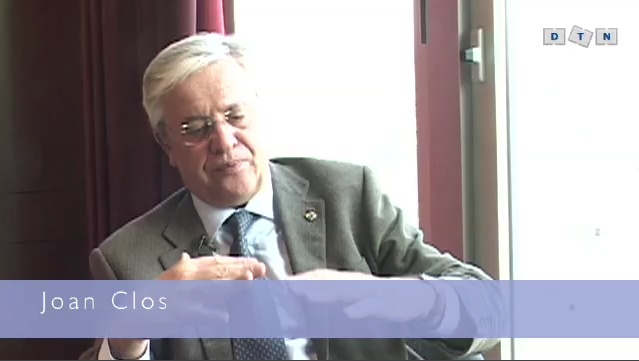
“Raval has 48% immigrants, and it is becoming the fashionable neighborhood of the city.” Joan Clos gives a positive view of immigration in Barcelona. Because of the low fertility rate and high job vacancies, immigrants are vital for Barcelona. The average level of education among the immigrant community is even slightly higher now than it is for the local population.
______________________________________________________________________________________________________________________________________________________
Peter Cochrane – Former CTO of British Telecom – U.K.
The best people bypass education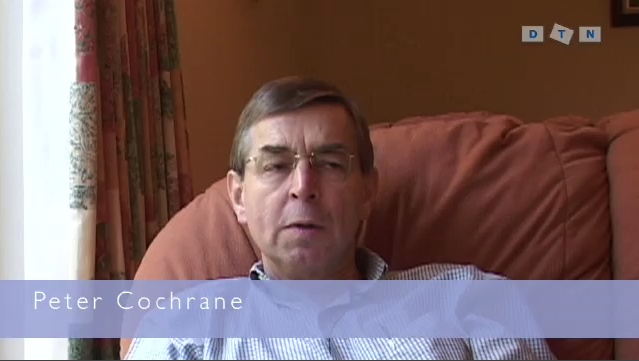
“If you suggested to someone that’s young to do a course on how to run a PC, they would laugh at you.” Young people are bypassing education, learning valuable skills in everyday life, Peter Cochrane observes. Worldwide, the best people in innovative fields got their skills from doing, not by learning them at school. Companies should take this into account when setting up their training programs.
______________________________________________________________________________________________________________________________________________________
Jack van Driel – CTO IBM Digital Media – Netherlands
In this interview Jack van Driel elaborates on the history of IT processes. Legacy systems are not the result of mistakes, they came from good choices at that moment. He stresses the importance of being consumer minded and the importance of ICT in this.
______________________________________________________________________________________________________________________________________________________
Uffe Elbaek – Founder/Principal of the KaosPilots – Denmark
“Young people are not loyal to the company, like their parents were; but they are very loyal towards the team they are working in and the project they are dealing with.” According to Uffe Elbaek, young people are looking for interesting projects to work on, much more than for an interesting employer. This completely changes the way that companies should deal with young talent and how they should judge their behavior.
______________________________________________________________________________________________________________________________________________________
Arie de Geus – Former Director of Planning Unit Shell – The Netherlands
 Learning as a prerequisite for change
Learning as a prerequisite for change
“The idea of top-management was, why were you top-management? Because you were so bloody brilliant!” Arie de Geus talks about a moment of transition in Shell’s top-management. At the time it was assumed that, as top-managers, they were already knowledgeable and experienced and no longer needed to learn. Learning was something that others did. Faced with a completely new situation, however, it could only be concluded that top-management was in a learning situation.
______________________________________________________________________________________________________________________________________________________
Kees van der Graaf – CEO of Unilever Europe – The Netherlands
“Do we give our children the example, for the difference we can make?” Kees van der Graaf is worried. People in Holland don’t seem to want to invest time and effort in developing themselves and the community they are part of. But can we blame them? After all, a lot of opportunity for making a difference in the world, has been lost by the generation in power: enough opportunities for setting the right example, making the world a better place, and making some money in the process.
Social responsibility of business
“If you are aware, as a multinational, of the footprint you leave behind, and you care about that footprint, than I don’t think there is an issue”. “If a multinational doesn’t act in a sustainable way, it creates it’s own problems in the future. Kees van der Graaf gives the example of Unilever changing its fishing policies to make sure they won’t be the cause of lack of fish in the sea, which would put them out of business in an important area as well.”
______________________________________________________________________________________________________________________________________________________
Emmanuel Gobillot – Author of ‘The connected leader’ – U.K.
“I think there is a realisation that the individual in isolation doesn’t explain success.” Emmanuel Gobillot sees a shift in societal focus from individual to community. People are starting to understand that the individual can not be seen as being separate from the community of which he or she is a part of. This has its impact on all parts of society, including business and management.
________________________________________________________________________________________________________________________________________
Christian Goeckenjan – Vice President Industry Solution Management
Richard Lowrie – Director Banking Strategy
An important topic of this interview is Change. Change by disruptive technologies, change in attitude towards banking and how to prepare for change by atomic thinking. The interviews ends with the place of CRM and in particular SAP in this changing environment.
______________________________________________________________________________________________________________________________________________________
Katarzyna Hall – Minister of National Education – Poland
Education: shift to local responsibility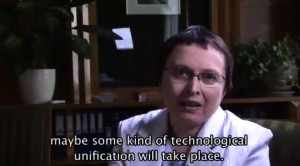
“I want to give education to the local authorities.” Katarzyna Hall knows from experience that it is easier for local authorities, than it is for national authorities, to sustain policies to improve education. This is simply because local authorities are more often re-elected, allowing policies to continue. To de-politicise education, Hall wants to move the control of education from the national government to municipalities.
______________________________________________________________________________________________________________________________________________________
Eric van Heck – Professor at the Rotterdam School of Management – The Netherlands
The interface between business and ICT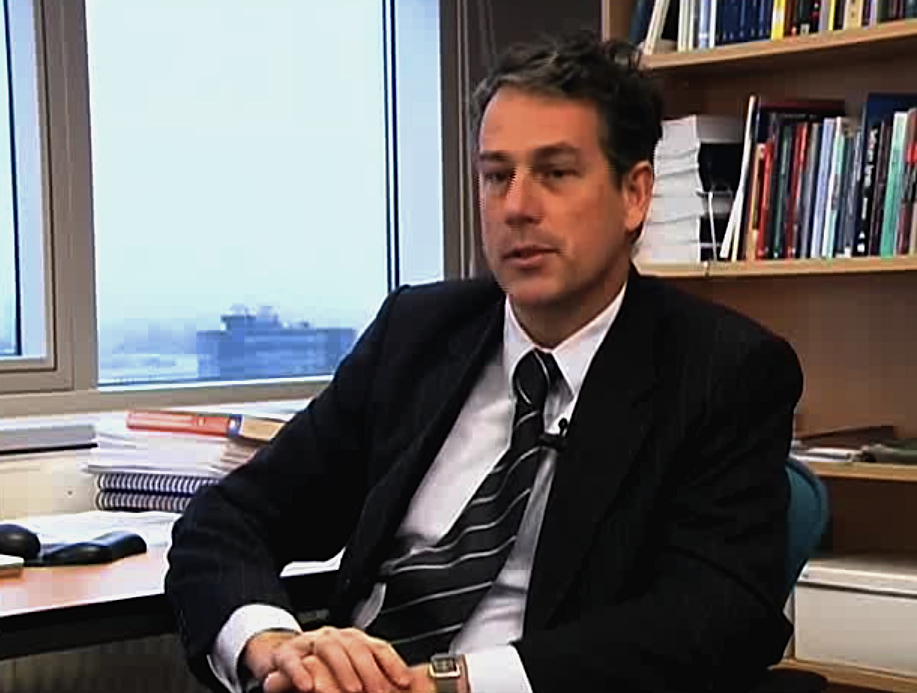
In this interview, Eric van Heck talks about the increasing complexity of products and services in ICT in banking. He elaborates on the role the active costumer plays in this complexity and how the Rabobank should react to that in terms of the development of ICT systems. In the second half of the interview he shares his ideas about the capabilities needed in this situation.
______________________________________________________________________________________________________________________________________________________
Stephen Heppell – Former Head of Ultralab – U.K.
“People don’t think hard enough how the 21st century is different from the 20th century.” Stephen Heppell points out that what was successful in the 20th century were “big things that did things for people”. In the 21st century, the big success stories are things that make people help each other. This means that people must move out of a passive role and become much more of an active player. This has an impact on education and learning and what they should entail.
______________________________________________________________________________________________________________________________________________________
Theo Huibers – Director of KPMG Business Advisory Service – The Netherlands
“You can’t be best in class on all steps in the value chain.” Theo Huibers pleads for differentiation. A company that tries to be best in every part of the value chain gives itself a difficult time. In order to be convincing for the client, you have to be best-in-class in your part of the value chain. That is why it is better to choose a particular segment of the value chain on which to concentrate your efforts.
______________________________________________________________________________________________________________________________________________________
Heikki Karjaluoto – Professor in Electronic Commerce at the University of Oulu – Finland
In this interview, Heikki Karjlauoto stretches the importance of direct contact with costumers. In his opinion the personalisation of banking services should be improved. This means that different channels have to be available to consumers, because they don’t all want to use digital banking.
___________________________________________________________________________________________________________________________________________
Anne Jones – Founder/ Managing Director of Lifelong Learning Systems – U.K.
“You don’t really learn unless you have decided you want to learn it.” Self-managed learning, according to Anne Jones, is the only way to really learn. So, in education, students should be motivated to learn for themselves. While that sounds easy, it is, in reality, very hard to do. Jones shares some examples from her own experience as school director.
___________________________________________________________________________________________________________________________________________
Timo Lankinen – General Director Department of Education Finland
The success of Finnish education lays with the teachers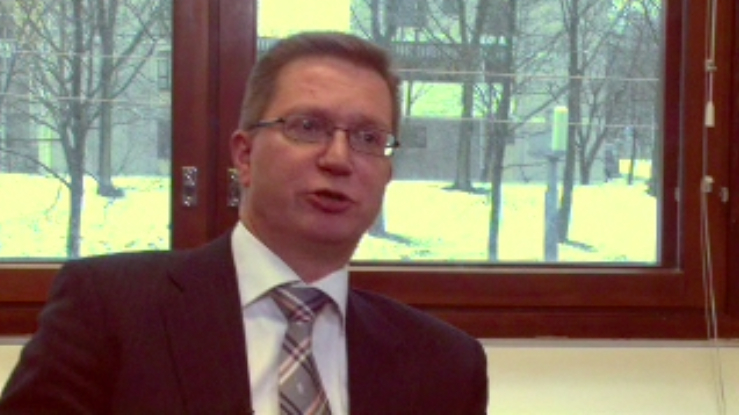
______________________________________________________________________________________________________________________________________________________
Hugo Letiche – Professor at University of Humanistics – The Netherlands
“The problem in the system [of education] has enormously to do with the training and further education of teachers.” In Hugo Letiche’s opinion, the education system in the Netherlands needs “a deep rethink”. You should not let bureaucrats run the education system; but the problem in the Netherlands is that teachers are in no position to take a bigger role in education. They simply never learned the skills.
______________________________________________________________________________________________________________________________________________________
Tim O’Reilly – Founder and CEO of O’Reilly Media – U.S.A.
Harnessing collective intelligence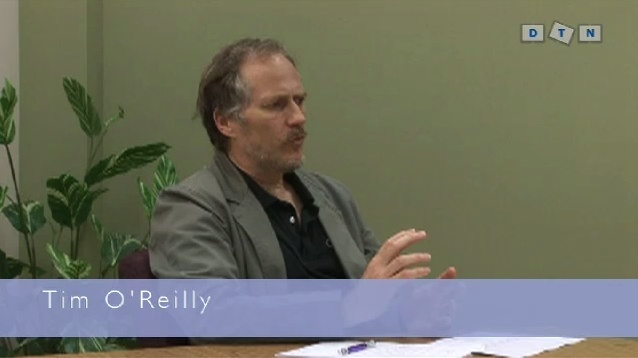
“If you think about Google’s breakthrough in search, they stopped just searching documents and started looking at what people did to the documents.” Tim O’Reilly observes that the companies which easily survived the dot-com bust are those dedicated to harnessing collective intelligence. They were companies that used peoples’ combined activities on-line to inform the activities of the software and how it could help the next user. While the information was the same, different companies dealt with it in different ways.
______________________________________________________________________________________________________________________________________________________
Kai Peters – CEO Ashridge Business School – U.K.
Focus on a wider variety of skills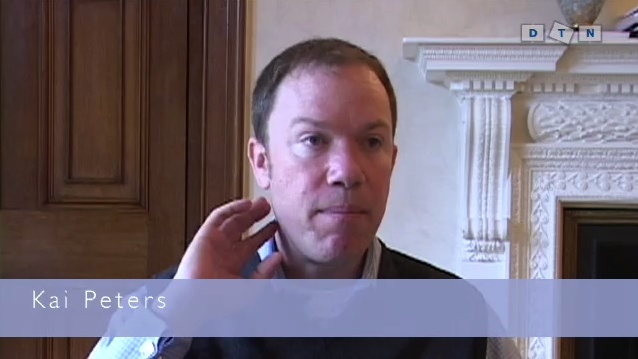
“We are not all nuclear physicists in business. Some of business is just getting on with things.” Kai Peters comments on the tendency of business schools to try and get only the best performing students. In fact, much of what is valued in business and needs to be done has little connection with what is valued in students.
______________________________________________________________________________________________________________________________________________________
Jorgen Randers – Co-author of ‘The limits to growth’ (Club of Rome) – Norway
Technology exists for CO2-free energy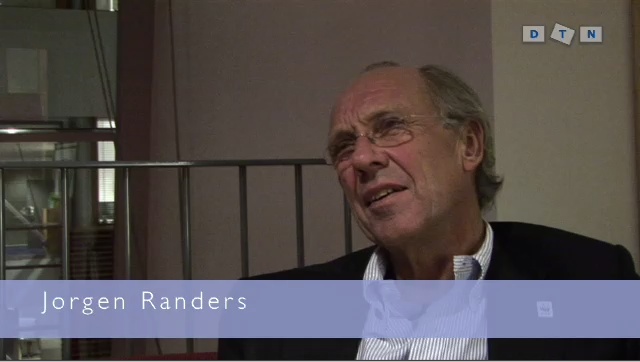
“The technologies already largely exist that will reduce the CO2 emissions from high income countries, without lowering the economic level significantly”. According to Jørgen Randers, the current problems with global warming, in terms of CO2 emissions, are highly solvable. If we combine existing technology in the right way, we can solve CO2 emissions without burdening the economy beyond what it can carry.
______________________________________________________________________________________________________________________________________________________
Alexander Rinnooy Kan – The Executive Board ING – The Netherlands
“Globalisation assumes that we have a stable world against which this globalisation play is being acted.” Globalisation, Alexander Rinooy Kan observes, has long developed against the backdrop of a world where stability was taken for granted. That is no longer the case and that has its impact on how globalisation develops. This might make it necessary to readjust our positive view of globalisation.
______________________________________________________________________________________________________________________________________________________
Johan Roos – Director of Imagination Lab Foundation – Geneve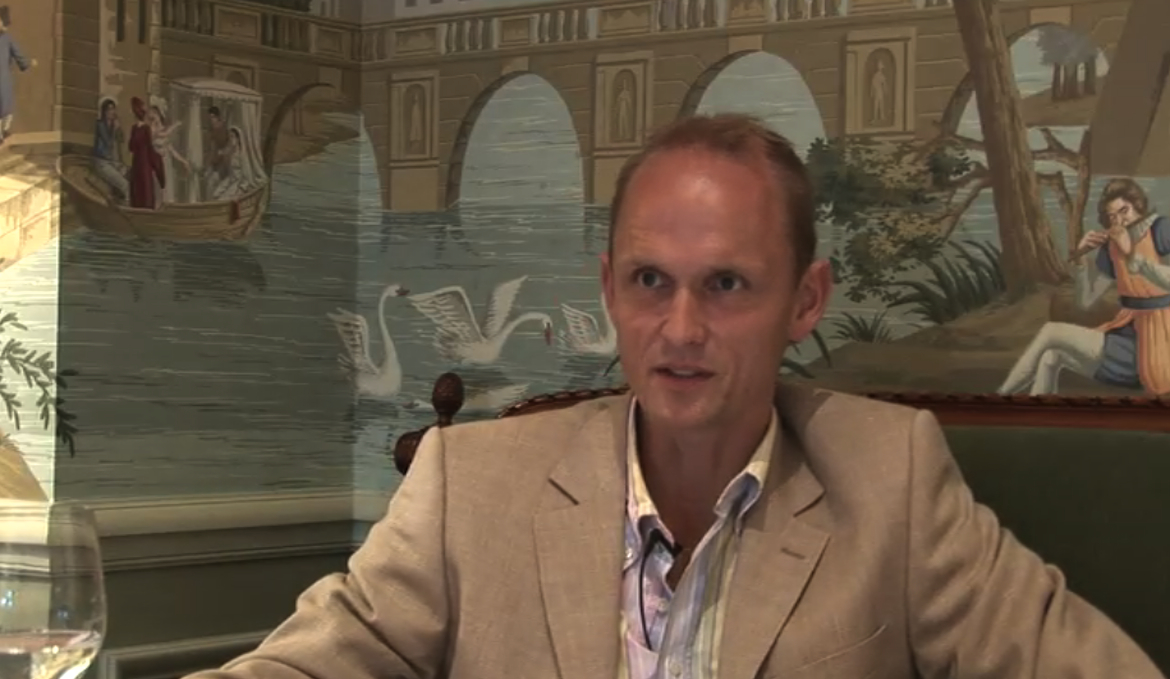
Founded Imagination Lab Foundation, a Swiss-based, independent and non-profit research foundation. Its purpose is to support scholarship that complements traditional management and organization theories with ideas grounded in the arts and sciences, especially those of imagination and play.
______________________________________________________________________________________________________________________________________________________
Andreas Schleicher – Head of Analysis at OECD Education – France
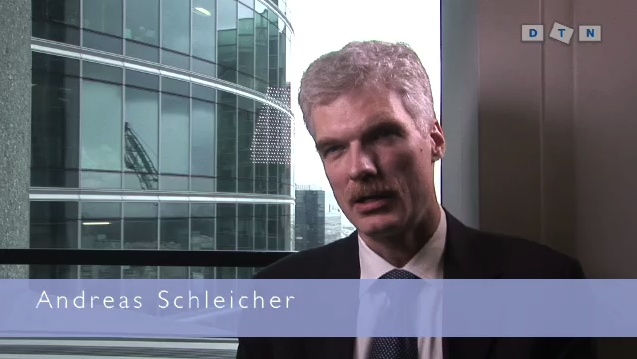 Learning and change in education systems. “Schools are about learning, but they don’t really learn themselves”. Andreas Schleicher observes that school systems tend to be resistant to change. Everyone recognises the success of education in countries like Finland, but if it comes to following the example, there is a lot of reluctance. On the other hand, some remarkable examples show that real change is possible in education.
Learning and change in education systems. “Schools are about learning, but they don’t really learn themselves”. Andreas Schleicher observes that school systems tend to be resistant to change. Everyone recognises the success of education in countries like Finland, but if it comes to following the example, there is a lot of reluctance. On the other hand, some remarkable examples show that real change is possible in education.
______________________________________________________________________________________________________________________________________________________
Ralph Schonenbach – CEO
Severin Weiss – Director Switzerland and India
Ralph Schonenbach and Severin Weiss give us insight into outsourcing to India, from the point of view of a major European sourcing party. They give a lively description of the enormous developments going on in India. They argue that outsourcing is not just shipping of the work to India. Communication is very important and the best way to make sure outsourcing is a success, is to build strong partnerships.
___________________________________________________________________________________________________________________________________________
Roger Standaert – Director of Educational Development for Flander – Belgium
Motivation and content in education
“The fundamental problem in learning is the learner’s motivation,” says Roger Standaert. According to him, technological means will not fundamentally change learning because some students simply do not want to learn. And technology will not help teachers in any new way to motivate students. However, technology can make learning more of an individual exercise to the extent that subjects are structured in a systematic and logical way. With the help of technology, students will be able to go through the material, step by step, at their own pace.
______________________________________________________________________________________________________________________________________________________
John Thackara – Director of Doors of Perception – U.K.
Are we prepared to make real changes?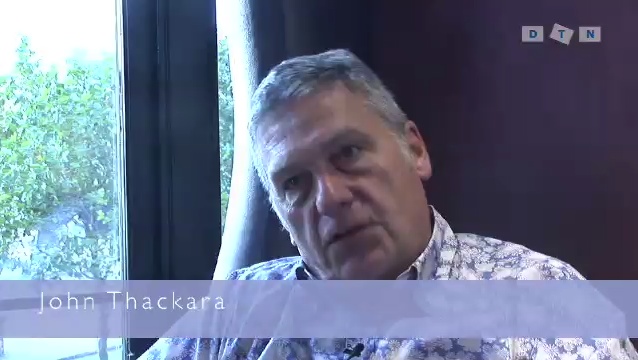
“We are in a period of low hanging fruit [in sustainability] where you can make some changes and where you can make things ten, twenty, thirty percent better without undue effort.” John Thackara raises the question of what will happen if the easy changes, related to the environment, have been effected, and changes with much higher costs are then necessary.
______________________________________________________________________________________________________________________________________________________
Riitta Vanska – Manager E-learning at Nokia – Finland
Core knowledge is found in the field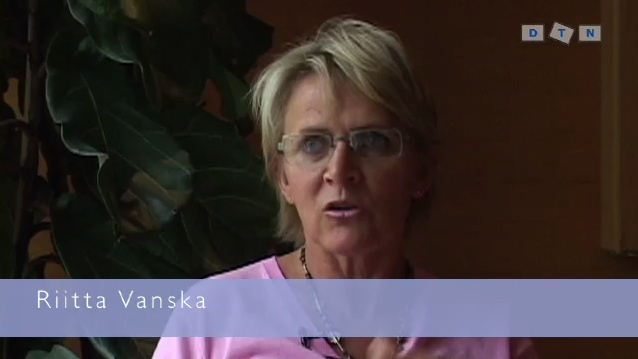
“I don’t see any difference between content that is delivered to me for information purposes or content that is delivered to me for learning purposes.” Riitta Vanska wants to bridge the gap between learning and other work-related activities in organizations. Learning should not be a separate activity but part of everyday, working life. For example, the principal knowledge for engineers can be found in the field, not among learning guru’s.
______________________________________________________________________________________________________________________________________________________
Eddy Vermeire – Ordina executive committee member and former CEO The Vision Web
(the interview is in Dutch)
Eddy Vermeire discusses the importance of clarity of a business model. What a bank looks like is based, for an important part, on how it has developed. To base development on the function of the bank more than on its history, decisions should be made as if you where starting from scratch, reacting on processes on the outside rather than on the inside.
___________________________________________________________________________________________________________________________________________
Ben Verwaayen – CEO British Telecom – U.K.
“The real globalisation is that you do not have to move, physically.” Globalisation, and the technologies that make it possible, have changed the economic reality significantly, says Ben Verwaayen. New areas have developed, from needing aid to being a serious business partner or fierce competitor. With a click of the button, we can be anywhere in the world without having to move.
______________________________________________________________________________________________________________________________________________________
Rein Willems – Senator and CEO of Shell – The Netherlands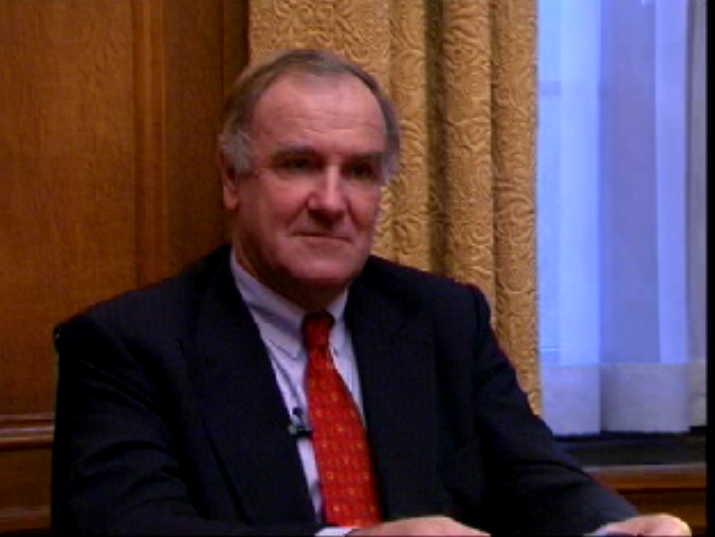
Rein Willems was President of Shell Nederland from 2003-2007. Since 1969, he has held a number of positions at Shell, with postings in Singapore, Australia, the UK, the Philippines and Brazil. In addition, he was a member of the Executive Committee and the Environmental Committee of the Employers Association VNO-NCW and the Innovation Platform.
______________________________________________________________________________________________________________________________________________________


